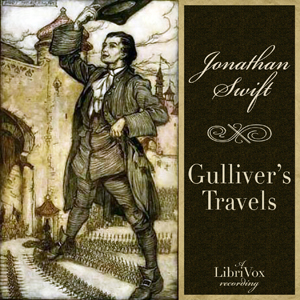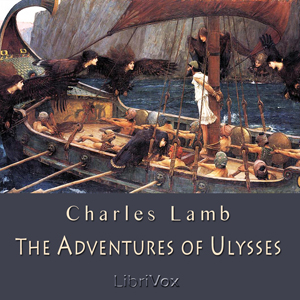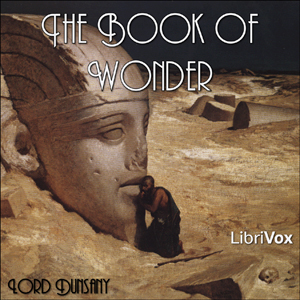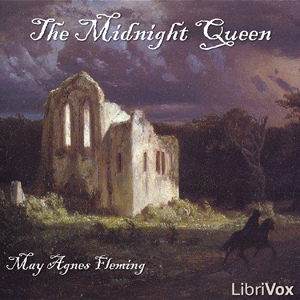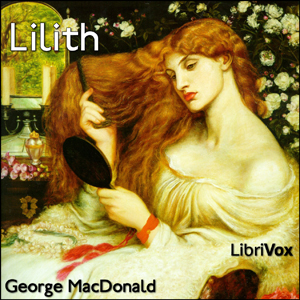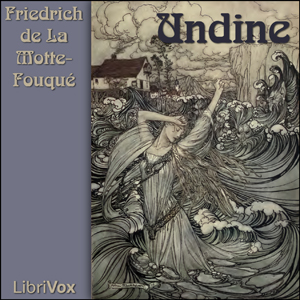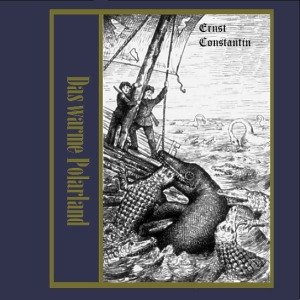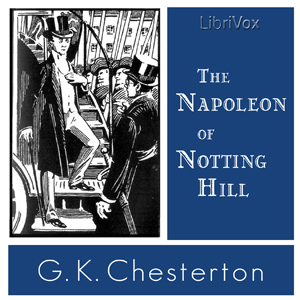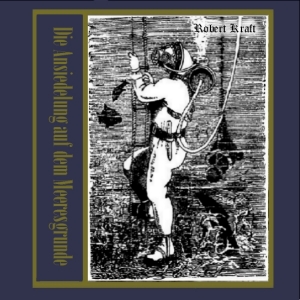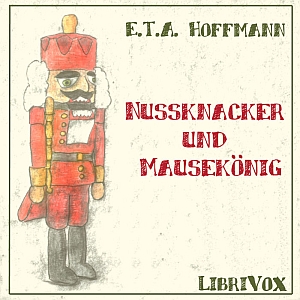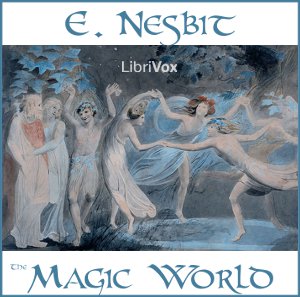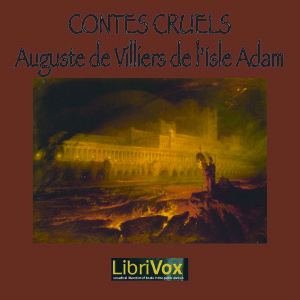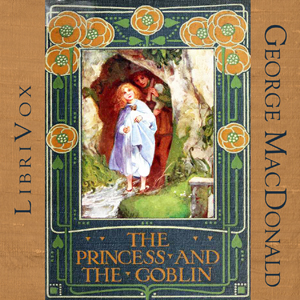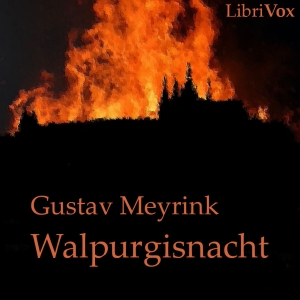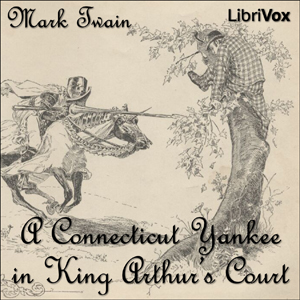
Come and hear the strange tail of The Boss Hank Morgan, a modern day (at the time of publication) Connecticut Yankee who inexplicably finds himself transported to the court of the legendary King Arthur (as the title of the book implies). Hank, or simply, The Boss, as he comes to be most frequently known, quickly uses his modern day knowledge and education to pass himself off as a great magician, to get himself out of all sorts of surprising, (and frequently amusing) situations, as well as to advance the technological and cultural status of the nation in which he finds himself.
In the rather un-subtle sub-text of the story, Twain uses The Boss to express a surprisingly pragmatic and frequently contradictory philosophy. The Boss explores the relative merits of Democracy, and Monarchy, he expresses his views on the “Nature v. Nurture” debate, he frequently speaks forcefully against an established Church, but just as strongly advocates for religion and a variety of churches (just not a compulsory one) and he devotes at least one afternoon to introducing his companions to the concept of inflation. In a far more subtle, yet no less forceful manner, the Boss shares with the reader some views about taxation, slavery (both literal and wage slavery), trade unions, the origins of the German language, the nature of marriage, and probably most powerfully, death.
It is a tall order for a relatively brief text, but Twain manages it all with surprising clarity. No one will agree fully with the Boss on all of these matters, and I would be surprised if Twain himself would. In fact the Boss’s views are so pragmatic, and often contradictory, the reader is left to wonder if Twain himself is alternately speaking through the Boss, and setting him up as a straw man. Either way it is a delightful story and a great piece of American Literature, to say nothing of an excellent argument for education.
(Review written by Steve Andersen)
45 episodes
Journey to the Interior of the Earth is an 1864 science fiction novel by Jules Verne (published in the original French as Voyage au centre de la Terre). The story involves a professor who leads his nephew and hired guide down a volcano in Iceland to the “center of the Earth”. They encounter many adventures, including prehistoric animals and natural hazards, eventually coming to the surface again in southern Italy. (Summary from wikipedia.org)
41 episodes
In this children's classic, a girl named Alice follows falls down a rabbit-hole into a fantasy realm full of talking creatures. She attends a never-ending tea party and plays croquet at the court of the anthropomorphic playing cards. (Summary written by Gesine)"I loved all the voices in this project and probably wouldn’t have put the time into checking into this book without this LibriVox version of it. Great project and well done by all. What people can do really amazes me from time to time. This reminds me of how beautiful the world can be." — skinned mink
12 episodes
Part One of Edgar Rice Burroughs’s Mars-Series. Easy, swank, pulp read about an omnipotent gentleman teleported to Mars, finding an outlandish society of ape-, tree- and lizardmen, red-, white-, yellowmen, brains on legs, strange bastions and curious apparatuses, where the strongest survives and women are needy beauties to be saved. How can something be so platitudinous and at the same time so imaginative and enthralling? Boys’ book for sure. (Summary by Stephan)
29 episodes
This story of Santa Claus veers away slightly from the traditional stories of his beginnings. L. Frank Baum creates a world of fantasy that surrounds Santa Claus's life. Orphaned at an infant he is found by the nymph Necile, who convinces the great Ak to allow her to raise Claus for her own. As he grows older he meets his fellow humans, and sees the neglect of children. This sets him on the path to making toys and becoming the beloved Saint Nicholas we are familiar with today. (summary by Kri)
12 episodes
Gulliver's Travels (1726, amended 1735), officially Travels into Several Remote Nations of the World, is a novel by Jonathan Swift that is both a satire on human nature and a parody of the "travelers' tales" literary sub-genre. It is widely considered Swift's magnum opus and is his most celebrated work, as well as one of the indisputable classics of English literature. (Summary from Wikipedia)
40 episodes
Three children, forced to remain at school during the holidays, go in search of adventure. What they find is a magic castle straight out of a fairy tale, complete with an enchanted princess at the center of a maze. Or is it? The castle turns out to be just a country estate, and the princess is only the housekeeper's niece, playing at dressing up. But the magic ring she shows them proves -- to her surprise and horror -- to really be magic. Soon they are caught in an adventure where statues come alive, lost lovers are reunited, and wishes can be granted -- but always for a price. (Summary by Peter Eastman)
12 episodes
A collection of works that explore the rich and evocative legend of King Arthur. The exploits of Arthur and his Knights of the Round Table have been a staple of British literature through the centuries, drawing together themes of pagan wizardry, the search for the Holy Grail, chivalry and of course romance.
10 episodes

Candide, ou l’Optimisme, (“Candide, or Optimism”) (1759) is a picaresque novel by the Enlightenment philosopher Voltaire. Voltaire never openly admitted to having written the controversial Candide; the work is signed with a pseudonym: “Monsieur le docteur Ralph”, literally “Mister Doctor Ralph.”Sardonic in outlook, it follows the naïve protagonist Candide from his first exposure to the precept that “all is for the best in this, the best of all possible worlds,” and on through a series of adventures that dramatically disprove that precept even as the protagonist clings to it.The novel satirizes naïve interpretations of the philosophy of Gottfried Leibniz and is a showcase of the horrors of the 18th century world. In Candide, Leibniz is represented by the philosopher Pangloss, the tutor of the title character. Despite a series of misfortunes and misadventures, which include being present at the Lisbon Earthquake, Pangloss continually asserts that “Tout est pour le mieux dans le meilleur des mondes possibles” (“All is for the best in the best of all possible worlds”). The novel ends with Candide finally rejecting the optimism espoused by Pangloss, saying, “Il faut cultiver notre jardin” (“It is necessary to cultivate our garden”). Summary from Wikipedia
31 episodes
The idea was to write a whole novel in the month of November, based on the guidelines of the National Novel Writing Month. The twist is that there are up to 30 people writing together, instead of one toiling alone. Each writer signed up to do one section of 1,700+ words, in English. Plot and particulars were agreed before the start. Each writer also recorded his/her own chapter, which can be downloaded here. The resulting novel is in the public domain. (Summary by Gesine)
32 episodes
Charlton Miner Lewis' version of Gawayne and the Green Knight, a late 14th century alliterative romance, is written in modern language telling the story of the Green Knight's challenge to Gawayne, and the romance between Sir Gawayne and Lady Elfinheart. The name Gawayne is often also spelled Gawain. (Summary by Betsie Bush)
4 episodes
Lamb used Homer's Odyssey as the basis for the re-telling of the story of Ulysses's journey back from Troy to his own kingdom of Ithaca. Not a direct translation and deemed modern in its time, Lamb states in the preface that, "I have gained a rapidity to the narration which I hope will make it more attractive and give it more the air of a romance to young readers". (Summary by Rebecca)
11 episodes
The Scarecrow of Oz is the ninth book set in the Land of Oz written by L. Frank Baum. Published on July 16, 1915, it was Baum's personal favorite of the Oz books and tells of Cap'n Bill and Trot journeying to Oz and, with the help of the Scarecrow, overthrowing the cruel King Krewl of Jinxland. (Summary from Wikipedia)
Narrated by Cori Samuel,
Ed Good,
Gesine,
Kara Shallenberg,
Kira Belkin,
Kelly Harmon,
K.O. Munley,
Lucy Burgoyne,
Timothy H. VanderWall,
Patrick Beverley,
Riccardo, and
Scott Sherris.
Characters performed by Abigail & Adam Flach,
Robert Flach,
Allyson Hester,
Jamie Wilking,
Kirsten Ferreri,
Chip Joel,
Ezwa,
Claire Goget,
Henry Frigon,
Hugh McGuire,
Stephanie König,
Mark F. Smith,
Kevin McAsh,
Ken Crooker,
Laura Brodrick,
Ada Kerman,
Michael Yard,
Lizzie Driver,
Saul,
Jason Isbell,
Susie G., and
Talia Fishman.
25 episodes
Alice's Adventures in Wonderland is a work of children's literature by the English mathematician and author, the Reverend Charles Lutwidge Dodgson, written under the pseudonym Lewis Carroll. It tells the story of a girl named Alice who falls down a rabbit-hole into a fantasy realm populated by grotesque figures like talking playing cards and anthropomorphic creatures. The Wonderland described in the tale plays with logic in ways that have made the story of lasting popularity with adults as well as children. It is considered to be one of the most characteristic examples of the genre of literary nonsense. (Wikipedia)
10 episodes
"Come with me, ladies and gentlemen who are in any wise weary of London: come with me: and those that tire at all of the world we know: for we have new worlds here." - Lord Dunsany, the preface to "The Book of Wonder"
14 episodes

The premise of the book is that everyone who has ever died (up until the time in which the book is set, which seems to be about the time of its publication) has gone to Styx. This does not appear to be the conventional Hell described by Dante in The Inferno, but rather the Hades described in Greek myth (both of which had Styxes): a universal collecting pot for dead souls, regardless of their deeds in life.The book begins with Charon, ferryman of the Styx (in The Inferno, he was the ferryman of the river Acheron) being startled—and annoyed—by the arrival of a house boat on the Styx. At first afraid that the boat will put him out of business, he later finds out that he is actually to be appointed the boat's janitor.What follows are eleven more stories (for a total of twelve) which are set on the house boat. There is no central theme, and the purpose of the book appears to be as a literary thought experiment to see what would happen if various famous dead people were put in the same room with each other. Each chapter is a short story featuring various souls from history and mythology. (Wikipedia)
12 episodes

"Old Ralph Rinkelmann made his living by comic sketches, and all but lost it again by tragic poems. So he was just the man to be chosen king of the fairies..." George MacDonald (December 10, 1824 – September 18, 1905) was a Scottish author, poet, and Christian minister. Though no longer well known, his works (particularly his fairy tales and fantasy novels) have inspired admiration in such notables as W. H. Auden, J. R. R. Tolkien, and Madeleine L'Engle. The Shadows is one such fairy tale. The strange Shadows spend their existence casting themselves upon the walls and forming pictures of various sorts: mimicking evil actions of those who have done wrong in the hopes of causing their repentance, playing a comic dumb-show to inspire a playwright and dancing to inspire a musician, nudging a little girl to comfort her grandfather, and playing with a sick little boy as he waits for his mother to return home. The king privately pities the Shadows, for they cannot generally remember their deeds, acquaintances, or loves past a single night. (Summary by Wikipedia and Catharine Eastman)
2 episodes
An atomic bomb explodes in the mountains of Montana. But was there really a bomb? And was it really in Montana, or in Tokyo? Are Liz and Elizabeth the same woman, is she married with children, is her husband a spy? These and many other questions are constantly asked, and answered, in this round-robin small book written and recorded by LibriVox volunteers during the National Novel Writing Month (NaNoWriMo) November 2007. (Summary by Gesine)
20 episodes
May Agnes Fleming is renowned as Canada's first best-selling novelist. She wrote 42 novels, many of which have only been published posthumously.
The Midnight Queen is set in London, in the year of the plague 1665. Sir Norman Kingsley visits the soothsayer "La Masque" who shows him the vision of a beautiful young lady. Falling madly in love with her, he is astonished to find her only a short time later and saves her from being buried alive. He takes her home to care for her, but while he fetches a doctor, she disappears. Sir Kingsley and his friend Ormistan embark on an adventure to solve the mystery of the young lady - will they ever find her again? (Summary by Availle)
23 episodes
La Chasse-galerie (The Hunt of Gallery) also known as "The Bewitched Canoe" is a French Canadian tale of voyageurs who make a deal with the Devil, a variant of the Wild Hunt. In Quebec, the legend of the "chasse-galerie", or the bewitched canoe, is a favourite. Its most famous version was written by Honoré Beaugrand (1848 - 1906?). (From Wikipedia) Il s'agit de l'histoire de bûcherons de la Gatineau qui font un pacte avec le diable afin de faire voler un canot pour qu'ils puissent rendre visite à leurs femmes. Il devront cependant éviter de blasphémer durant la traversée, ne point heurter le canot aux clochers d'une église et être de retour avant six heures le lendemain matin. Dans le cas contraire ceux-ci perdraient leurs âmes. La version la plus connue est celle écrite par Honoré Beaugrand.(de Wikipedia)
5 episodes
A collection of King Arthur's adventures, from his ascent to King of Britain to his death. This book includes some of the crucial Arthurian legends about Sir Lancelot, the Knights of the Round Table, Queen Guinevere, and the search for the Holy Grail. (Summary by Robin Cotter)
21 episodes
Lilith, written by the father of fantasy literature, George MacDonald, was first published in 1895. Its importance was recognized in its later revival in paperback by Ballantine Books as the fifth volume of the celebrated Ballantine Adult Fantasy series in September, 1969. Lilith is considered among the darkest of MacDonald's works, and among the most profound. It is a story concerning the nature of life, death and salvation. Many believe MacDonald is arguing for Christian universalism, or the idea that all will eventually be saved. (Summary from Wikipedia)
48 episodes
The Swoop! tells of the simultaneous invasion of England by several armies — "England was not merely beneath the heel of the invader. It was beneath the heels of nine invaders. There was barely standing-room." (ch. 1) — and features references to many well-known figures of the day, among them the politician Herbert Gladstone, novelist Edgar Wallace, actor-managers Seymour Hicks and George Edwardes, and boxer Bob Fitzsimmons. (Summary from Wikipedia)
17 episodes
Undine is a novel by Friedrich de la Motte Fouqué concerning Undine, a water spirit who marries a Knight named Huldbrand in order to gain a soul. It is an early German romance, which has been translated into English and other languages. The novel served as inspiration for two operas in the romantic style by Ernst Theodor Amadeus Hoffmann and Albert Lortzing, respectively, and two ballets: the nineteenth century Ondine and the twentieth century Undine. An edition of the book was illustrated by Arthur Rackham. In The Fantastic Imagination, George MacDonald writes, "Were I asked, what is a fairytale? I should reply, Read Undine: that is a fairytale ... of all fairytales I know, I think Undine the most beautiful." (Summary from Wikipedia)
19 episodes
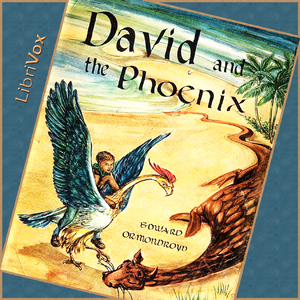
David knew that one should be prepared for anything when one climbs a mountain, but he never dreamed what he would find that June morning on the mountain ledge. There stood an enormous bird, with a head like an eagle, a neck like a swan, and a scarlet crest. The most astonishing thing was that the bird had an open book on the ground and was reading from it!This was David's first sight of the fabulous Phoenix and the beginning of a pleasant and profitable partnership. The Phoenix found a great deal lacking in David's education -- he flunked questions like "How do you tell a true from a false Unicorn?" -- and undertook to supplement it with a practical education, an education that would be a preparation for Life. The education had to be combined with offensive and defensive measures against a Scientist who was bent on capturing the Phoenix, but the two projects together involved exciting and hilarious adventures for boy and bird.A wonderful read-aloud book, adventurous and very funny, with much of the magic as well as the humor of the fantastic. (Summary from the front flap of the dust jacket.)
10 episodes
Ähnlich Jules Verne in seinem Roman "Reise zum Mittelpunkt der Erde", so führt uns auch Ernst Constantin in die Urtümliche Welt der Dinosaurier zurück. Als Handlungsort hat Ernst Constantin die damals noch unerforschte Polarregion gewählt. Sicherlich mit ein Grund, warum der Roman heute in Vergessenheit geraten ist.(Summary by Wassermann)
38 episodes
While the novel is humorous (one instance has the King sitting on top of an omnibus and speaking to it as to a horse: "Forward, my beauty, my Arab," he said, patting the omnibus encouragingly, "fleetest of all thy bounding tribe"), it is also an adventure story: Chesterton is not afraid to let blood be drawn in his battles, fought with sword and halberd in the London streets, and Wayne thinks up a few ingenious strategies; and, finally, the novel is philosophical, considering the value of one man's actions and the virtue of respect for one's enemies. (Summary from Wikipedia)
16 episodes
The Wood beyond the World is a fantasy novel by William Morris, perhaps the first modern fantasy writer to unite an imaginary world with the element of the supernatural, and thus the precursor of much of present-day fantasy literature. His use of archaic language has been seen by some modern readers as making his fiction difficult to read, but brings a wonderful atmosphere to the telling.Morris considered his fantasies a revival of the medieval tradition of chivalrous romances. In consequence, they tend to have sprawling plots of strung-together adventures. In this story, Walter leaves his father and his own unfaithful wife and sets sail in search of adventure. This he finds aplenty, encountering love, treachery and magic in the Wood of the title and in travelling through the Mountains of the Folk of the Bears. But can he find happiness and peace by means of his Quest?Read by Cori Samuel. Edited by Mandarine. Summary by Cori with reference to Wikipedia.
12 episodes
Die Ansiedlung auf dem Meeresgrunde erschien 1901 im Rahmen der 10 Hefte umfassenden Serie „Aus dem Reiche der Phantasie“, wobei jedes Heft eine abgeschlossene Geschichte ist. Die Reihe wurde von Robert Kraft in Genre der Jules Verne’schen Schriften gehalten und für die Jugend geschrieben. Sie erschien im Münchmeyer Verlag. (Summary by Wassermann)
9 episodes
Fantasy novel about the mystical adventures of a lonely English boy, Jimbo. It’s really quite beautiful and can be enjoyed by both older kids and adults, though parts may be too scary for younger children (who'd probably be bored anyway). (Summary by Adrian Praetzellis)
18 episodes

The Ball and the Cross is G. K. Chesterton's third novel. In the introduction Martin Gardner notes that it is a "mixture of fantasy, farce and theology." Gardner continues: "Evan MacIan is a tall, dark-haired, blue-eyed Scottish Highlander and a devout Roman Catholic.... James Turnbull is a short, red-haired, gray-eyed Scottish Lowlander and a devout but naive atheist.... The two meet when MacIan smashes the window of the street office where Turnbull publishes an atheist journal. This act of rage occurs when MacIan sees posted on the shop's window a sheet that blasphemes the Virgin Mary, presumably implying she was an adulteress who gave birth to an illegitimate Jesus. When MacIan challenges Turnbull to a duel to the death, Turnbull is overjoyed. For twenty years no one had paid the slightest attention to his Bible bashing. Now at last someone is taking him seriously! Most of the rest of the story is a series of comic events in which the two enemies wander about seeking a spot for their duel." MacIan and Turnbull become friends as they protect each other from interference from the modern world, which has trivialized their views over life's most important question (the existence of God) and outlawed their honorable duel. The irony is heightened when they both fall in love with ladies who happen to hold to their opponent's deepest convictions. Professor Lucifer and a Bulgarian monk also play important roles in this perennially relevant story. (Summary by Matthew Heckel)
20 episodes
Die Gifthöhlen ist ein ungewöhnliches Märchen und wohl eher für Erwachsene geeignet. Zwei Kaufleute, ein Christ und ein Jude, fahren wegen ihrer ewigen Zänkerei in die Unterwelt ein, wo sie nun Giftgetier füttern müssen. Flucht? Nur denkbar, wenn sie zusammenhalten würden. (Summary by Wassermann)
5 episodes
The endeavour of small Greek historians to add interest to their work by magnifying the exploits of their countrymen, and piling wonder upon wonder, Lucian first condemned in his Instructions for Writing History, and then caricatured in his True History, wherein is contained the account of a trip to the moon, a piece which must have been enjoyed by Rabelais, which suggested to Cyrano de Bergerac his Voyages to the Moon and to the Sun, and insensibly contributed, perhaps, directly or through Bergerac, to the conception of Gulliver’s Travels. The Icaro-Menippus Dialogue describes another trip to the moon, though its satire is more especially directed against the philosophers. (Summary from the Introduction)
6 episodes
Ein weihnachtliches Märchen.
Marie Stahlbaum bekommt zu Weihnachten einen Nussknacker geschenkt, den sie gleich sehr lieb gewinnt. Noch in der Christnacht wird sie Zeuge, wie Leben in den Nussknacker und die anderen Spielzeuge kommt. Sie beobachtet eine Schlacht zwischen der Spielzeugarmee unter dem Kommando von Nussknacker und den feindlichen Mäusen, angeführt vom siebenköpfigen Mausekönig. Als sich das Schlachtenglück den Mäusen zuneigt, wirft sie ihren Pantoffel und rettet damit die Spielzeugarmee.
Marie ist überzeugt, dass ihr Nussknacker niemand anderes ist als der verzauberte Neffe ihres Paten Droßelmeier. Sie ist fest entschlossen, ihm gegen den Mausekönig beizustehen. (Summary by Hokuspokus)
14 episodes
Talking cats, birds, fish and bells, wicked fairies, uglified princesses - adventure, magic, and more magic. A delightful collection of stories for children of all ages. The Magic World is an influential collection of twelve short stories by E. Nesbit. It was first published in book form in 1912 by Macmillan and Co. Ltd., with illustrations by H. R. Millar and Gerald Spencer Pryse. The stories, previously printed in magazines (like Blackie's Children's Annual), are typical of Nesbit's arch, ironic, clever fantasies for children. (Summary by Wikipedia and Ruth Golding)
12 episodes

Eine allegorische-phantastische Märchenerzählung aus der Zeit der Romantik. Schauplatz ist ein zeitloser Römischer Karneval, wie Jacques Callot ihn in der Graphik-Serie "Balli di Sfessania" dargestellt hat. Die Kräfte der Liebe, der Phantasie, des Humors – gebündelt und gesteigert in der Kunst, und im Römischen Karneval - gewähren es einem liebenden Paar, sich über alle Alltagskleinlichkeit erhaben zu fühlen. Nachdem jedes der beiden sich anfangs immer wieder mit seinem Möchtegern-Ich verwechselt, öffnet die dann gewonnene Selbsterkenntnis und damit verbundene realistische Bescheidenheit das Tor zu dauerhaftem Glück. (Summary by Rolf Kaiser)Filet ist ein franz. Wort und bedeutet eigentlich so viel als Fädchen, Garn, Netz. Gewöhnlich versteht man darunter ein aus roher Seide netzartig gewebtes Zeuch, zu Shawls, Busentüchern u.s.w. Eine Lieblingsbeschäftigung der Damen ist es, allerlei Filetputzsachen aus Zwirn, Wolle oder Seide zu stricken; sie bedienen sich dazu einer Nadel, der Filetnadel, und eines Stäbchens, auf welches sie die Maschen aufreihen, und von dessen Stärke die größere und geringere Dichtigkeit des Gestrickes abhängt. (Brockhaus Bilder-Conversations-Lexikon, Band 2. Leipzig 1838., S. 38-39.)
9 episodes
The Five Jars is the only novel written by James, who is best known for his ghost stories. It is a peculiarly surreal fantasy apparently written for children. While he is out walking, the narrator is drawn to a remote pool, and finds a small box that has been hidden since Roman times. He gradually learns how to use its contents, fighting off a series of attempts to steal it, and becomes aware of a strange world hidden from our own. (Summary by Peter Yearsley)
8 episodes
Les contes réunis par Villiers sont d'une grande diversité. Leur dénominateur commun est, selon l'auteur, la cruauté. En effet, Villiers y montre sans fard, avec cynisme parfois, les travers de ses contemporains qui semblent bien cupides (Virginie et Paul), sots et superficiels (La machine à gloire). Néanmoins, les Contes ne bornent pas, loin s'en faut, à une critique du temps : le fantastique (L'Intersigne), genre en vogue, est représenté. Surtout, au travers de la plupart des Contes transparaissent un sens du tragique et une poésie conformes à leur auteur, aristocrate ruiné, dramaturge sans succès et amoureux du Beau. (de Wikipedia)
29 episodes
Philip and Lucy discover that the city Philip has built using toys, books and household objects, has come alive. This is the account of their incredible adventures in those magical lands, where they meet characters from books and history, mythical beasts, and many other nice (and not so nice) people and creatures.As with all Edith Nesbit's tales, The Magic City has generous helpings of humour, imagination and interesting ideas, as well as the over-arching story of how a boy and girl who have unwillingly become step-brother and sister eventually learn to like each other.This is a story that works on many levels and will be equally enjoyed by adults and children. (Summary by Ruth Golding)
12 episodes
Jefferies' novel can be seen as an early example of "post-apocalyptic fiction." After some sudden and unspecified catastrophe has depopulated England, the countryside reverts to nature, and the few survivors to a quasi-medieval way of life.The first part of the book, "The Relapse into Barbarism", is the account by some later historian of the fall of civilisation and its consequences, with a loving description of nature reclaiming England. The second part, "Wild England", is an adventure set many years later in the wild landscape and society.The book is not without its flaws (notably the abrupt and unsatisfying ending) but is redeemed by the quality of the writing, particularly the unnervingly prophetic descriptions of the post-apocalyptic city and countryside. (Summary by Ruth Golding and Wikipedia)
33 episodes
George MacDonald's fairy stories and fantasy have inspired a number of writers including C.S. Lewis and J.R.R. Tolkien and of this popular fairy story, which as you might suspect concerns a little princess plotted against by a race of goblins, G.K. Chesterton said that it "made a difference to my whole existence." (Summary by Andy Minter)
32 episodes
The 13th century Icelandic Völsungasaga is usually read by people studying the Poetic Edda or Wagner's Ring - which obscures the fact it is a much better story than practically everything derived from it. A riddle-telling dragon, a broken sword, a hooded mysterious wanderer - cannibalism, incest, mutilation, and sensitive hearts. This is R-rated Tolkien - and the unashamedly archaic Magnússon-Morris translation is up for the adventure.
Passages spoken in Old Norse are taken from the edition of Sophus Bugge, Berlin, 1891.
(Summary by Corpang)
12 episodes

Peter Tourmalin is on a sea voyage back home to England from Australia, to return to his fiancee, and he is very bored. The fact that the time difference adds on extra hours to his boredom only makes it worse. So when he gets a unique opportunity to deposit his spare time into an account with the "Anglo-Australian Joint Stock Time Bank, Limited" he doesn't hesitate for long. By opening this account, he doesn't have to spend his spare time right away, but can withdraw it at any future date, when he wants a break. All he has to do is present a time cheque to any clock, and he is immediately brought back aboard ship to spend the time withdrawn.Sounds perfect? Peter certainly thinks so, when on a dreary November morning in London, a little tired with his exacting fiancee, he presents his first cheque and gets to spend a sunny quarter of an hour aboard ship. However, things get complicated when it turns out the time withdrawn isn't in consecutive installments, but all mixed up, leaving Peter often with no clue of any preliminaries or his relationship with the person he finds himself with. Since he is almost always dropped in the middle of a conversation this can be tricky - especially since his encounters include tete-a-tetes with not one but two beautiful young ladies (never at the same time of course!)… And things only get more and more complicated... (Summary by Anna Simon)
F. Anstey was a pseudonym of Thomas Anstey Guthrie.
12 episodes
In der Nacht des 30. April, der Walpurgisnacht, stört ein schlafwandelnder Schauspieler die Abendgesellschaft im Hause des Barons Elsenwanger auf dem Hradschin in Prag. Für die nächsten 4 Wochen steht das Leben der dort versammelten Personen unter dem Zeichen der Walpurgisnacht.
Meyrinks Werke habe einen starken Zug ins Fantastische und Esoterische. "Walpurgisnacht" erinnert in seiner Dichte und Tiefgründigkeit an die Erzählungen aus "Des deutschen Spießers Wunderhorn". (Zusammenfassung von Hokuspokus)
15 episodes
An early, light-hearted short story, published in 1872 by Jules Verne. It takes place in the Flemish town of Quiquendone, where life moves at an extraordinarily tranquil pace. Doctor Ox has offered to light the town with a new gas, but actually has other plans in place. (Summary by Alan Winterrowd)
5 episodes

This version of the book is done as a Dramatic Reading with various people speaking each characters part.
When the King of Barodia receives a pair of seven-league boots as a birthday present, his habit of flying over the King of Euralia's castle during breakfast provokes a series of incidents which escalate into war. While the King of Euralia is away, his daughter Hyacinth tries to rule in his stead and counter the machiavellian ambitions of the king's favourite, the Countess Belvane. Ostensibly a typical fairytale, it tells the story of the war between the kingdoms of Euralia and Barodia and the political shenanigans which take place in Euralia in the king's absence. The book introduces us to a princess who is far from helpless; a prince who, whilst handsome, is also pompous and vain; an enchantment which is almost entirely humorous; a villain who is not entirely villainous and receives no real comeuppance; a good king who isn't always good; an evil king who isn't always evil, and so on. The result is a book which children may not enjoy as much as adults. The book was written by Milne partly for his wife, upon whom the character of the Countess Belvane was partially based. (Summary from Wikipedia)
Cast:Narration: Bob NeufeldKing Merriwig: Mark F. SmithPrincess Hyacinth: Karen SavageCountess Belvane: Catharine EastmanPrince Udo: Peter EastmanDuke Coronel: Glenn SimonsenWiggs: Arielle LipshawWoggs: Karen SavageKing of Barodia: Roger MelinChancellor of Barodia: Robert KeiperChancellor of Euralia: Denny SayersFairy: Neeru IyerOld Woman: Catharine EastmanAttendant: Arielle LipshawCarlo, Men of Euralia, Captain of Archers, Flunkey: David LawrenceLookout, Cautious voice, Messenger, Wizard, Sentry: Barry EadsAudio edited by: Barry EadsProof Listening by: Joy Easton and Arielle Lipshaw
22 episodes
The Metamorphosis, also known as The Golden Ass, is one of the very few novels of the Ancient World that survived to our days; one of the two novels of Roman Literature that we can still read; and the only one preserved in its entirety (the other one being the extremely fragmentary Satyricon).
The story of the Metamorphosis, the tale of a man turned into a donkey that goes through many adventures to become a man again, inspired many other similar ones later on. However, more than just the plot, the style of the Golden Ass also made it famous.
Considered one of the precursors of the picaresque novel, The Metamorphosis was written in a language that can be humorous and energetic, while telling the misadventures of the credulous and curious main character, but also powerfully poetic, in moments such as in the episode of Cupid and Psyche, one of the most famous parts of this book, and of Latin literature as a whole. (Summary by Leni)
23 episodes
This is a jolly little book about a little boy, a dog, a train and a house. But not an ordinary train, oh no, and not an ordinary house either! And there are songs, too. The Preface is short, dull and only for the grown-ups. (Summary by Ruth Golding)
9 episodes

Amadis of Gaul (Amadís de Gaula, in Spanish) was not the first, but certainly one of the best known knight-errantry tales of the 16th century. Not only is its authorship doubtful, but even the language in which it was first written - Portuguese or Spanish. It is imagined to have been composed in the 14th century, but the known first printed edition came to light in Zaragoza in 1508, and the oldest extant version is in Spanish.
The plot is the story of the brave knight Amadis, and starts with the forbidden love of his parents and his secret birth, followed by his abandonment near water. He is found and raised as the son of a knight. Upon reaching adulthood, he goes in a quest for his own identity, and investigates his origins through fantastic adventures: plenty of wizards, princesses, damsels in distress and other knights people the world of Amadis.
Amadis of Gaul, together with Palmerin of England and Tirante the White, are the only books saved from the fire by Quixote's curate, when purging the knight's library: Tirante, for its quaintness; Palmerin, because he thought it had been written by the king himself; and Amadis, for being the best of its kind. Even if Cervante's praise works more as censure, it's a fact that Amadis represents the style as no other, and was the father of a numerous flock, becoming a landmark work among the knight-errantry tales and marking the story of European literature. (Summary by Leni)
Dedicated Proof-Listeners: Miss Stav, Becky Cook, & Rapunzelina
62 episodes
Dr. David Throckmartin’s scientific expedition to the South Sea Islands discovers among ancient ruins a portal into Muria, an unknown underground world. After the disappearance of Throckmartin, his wife and two companions, his old friend Dr. Walter Goodwin enters Muria with a rescue party, only to confront an fantastic world filled with incredible beings, astounding scientific advances, and the worship of the most evil of all creatures, The Dweller. (Introduction by Mark Nelson)
35 episodes





